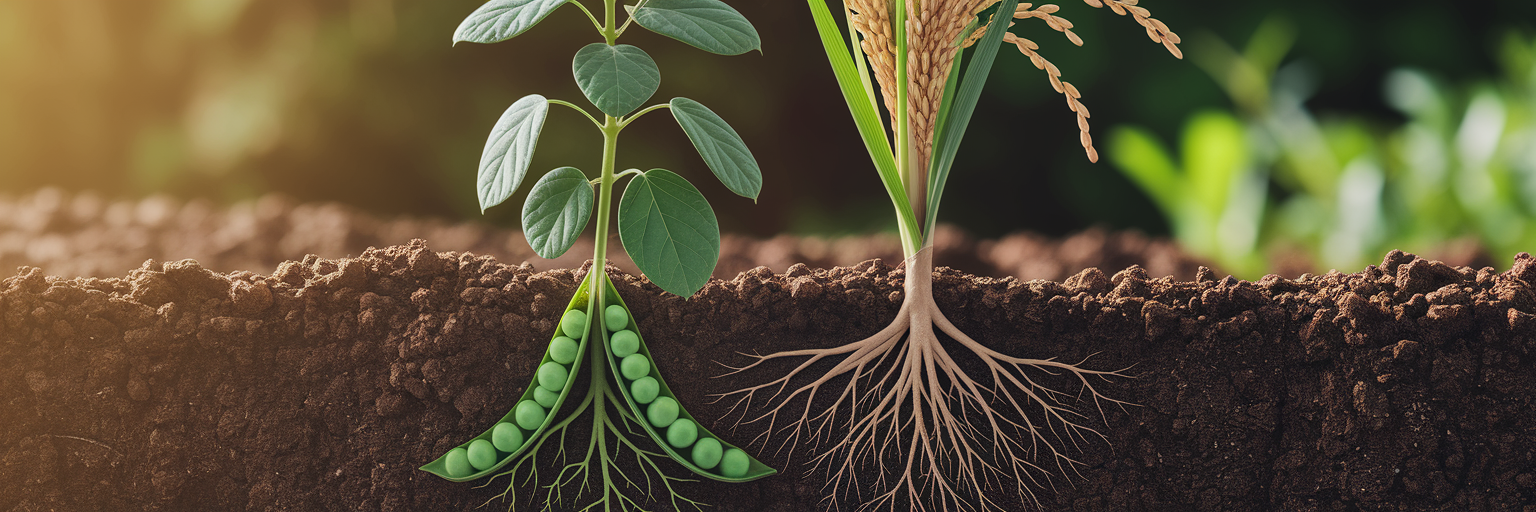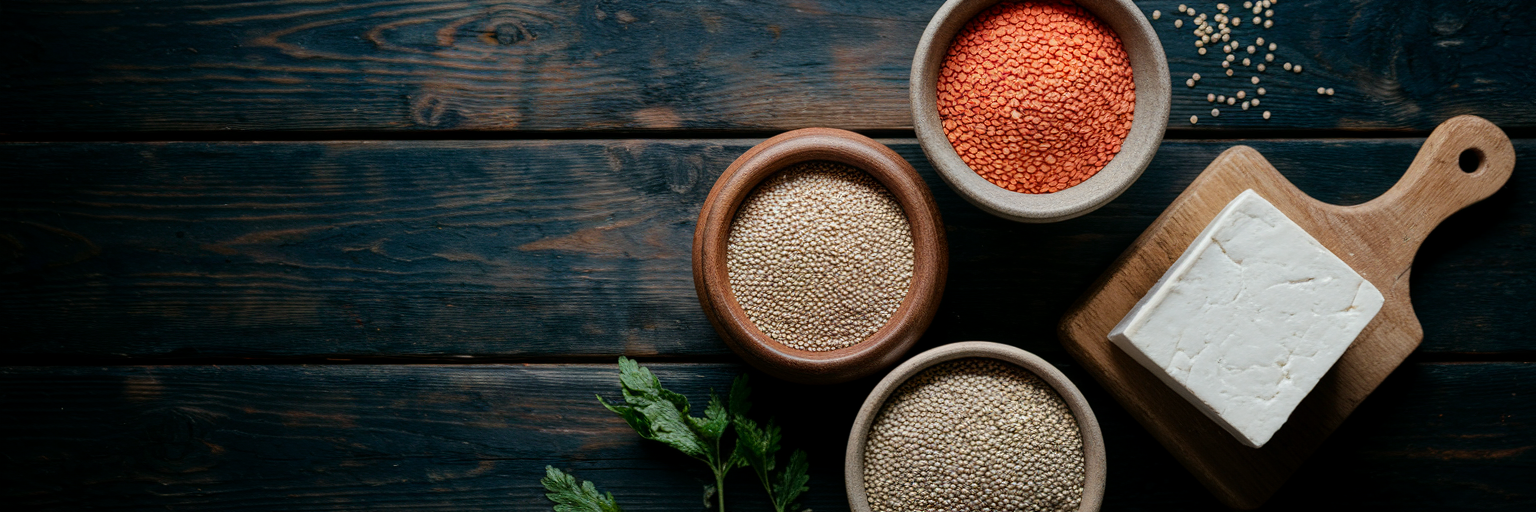For decades, the fitness world held a firm belief: if you want to build serious muscle, you need to eat meat. We've all heard it. But as more and more elite athletes switch to plant-based diets and continue to dominate their sports, it's clear that old belief is ready for an update. So, how exactly do they do it? Let's get into the science.
The Science of Muscle Growth on a Vegan Diet
Every time you finish a tough workout, your body kicks off a process called Muscle Protein Synthesis (MPS). Think of it like a construction crew arriving at a job site. Your muscle fibers have tiny tears from the exercise, and this crew’s job is to repair them, building them back even stronger. The materials this crew uses are amino acids, which come from the protein you eat.
One amino acid, leucine, acts as the project foreman. It’s the one that blows the whistle and signals the crew to start building. This is where the myth about "incomplete" plant proteins often comes up. The concern was that plant-based foods didn't have all the necessary amino acids in one place. But we now know the body is much smarter than that. It maintains an amino acid "pool," collecting what it needs from everything you eat throughout the day. You don't need to perfectly combine proteins at every single meal.
The key is getting enough total protein. In fact, a 2024 study published in a leading scientific journal found that as long as daily protein intake is matched, plant-based diets support muscle gains just as effectively as those including animal products. The science is clear: effective vegan protein for muscle growth is not just possible, it's a proven reality. And if you're focused on hitting those targets, exploring some of the best protein powders can make it much easier.
Plant Protein Versus Animal Protein for Athletes
So, if both plant and animal proteins can build muscle, what are the practical differences for an athlete? It’s less about one being "better" and more about understanding how to use them effectively. Animal proteins, like whey, often contain more leucine per gram and tend to be absorbed a bit faster. But this isn't a weakness of plant protein, just a factor to be aware of in your planning.
You can easily account for this by having a slightly larger serving of your plant protein source or by choosing a high-quality blend. Modern plant proteins are intelligently designed to deliver an exceptional amino acid profile. For instance, combining pea protein (high in lysine) with rice protein (high in methionine) creates a complete profile that stands strong next to whey, making them some of the best plant protein powder for athletes. Blends like our Chocolate Vegan Protein are specifically crafted to provide a complete amino acid profile to support your training goals.
Beyond muscle synthesis, plant proteins bring other unique advantages to the table. They are packed with fiber, which is fantastic for your gut health and digestion. They also deliver a wealth of antioxidants and anti-inflammatory compounds. These can be a huge asset for vegan athlete muscle recovery, helping your body manage inflammation after intense training. It’s a more holistic approach to performance, fueling not just your muscles but your entire system.
| Factor | Plant-Based Protein | Animal-Based Protein |
|---|---|---|
| Leucine Content | Generally lower per gram; requires mindful sourcing | Typically higher per gram (e.g., whey) |
| Absorption Speed | Varies; often slower due to fiber content | Generally faster, especially isolates like whey |
| Digestive Health | High in fiber, supporting a healthy gut microbiome | Low in fiber; can be heavy for some individuals |
| Nutrient Profile | Rich in antioxidants, vitamins, and minerals | Often contains saturated fat and cholesterol |
| Recovery Support | Anti-inflammatory compounds can aid recovery | Lacks the anti-inflammatory benefits of plants |
Optimizing Your Protein Intake for Peak Performance
Knowing that plant protein works is the first step. The next is creating a smart strategy to make it work for you. A successful plant based athlete diet plan is all about consistency and smart planning. Here’s how to get it right.
Calculate Your Daily Needs
So, how much vegan protein to build muscle? A great target for active individuals and athletes is between 1.4 to 1.7 grams of protein per kilogram of body weight. For a 175-pound athlete, that's about 79.5 kg, which means you should aim for 111–135 grams of protein daily. This provides your body with ample resources for repair and growth.
Time Your Protein Strategically
Instead of trying to eat all your protein in one or two large meals, aim to spread your intake across 3–5 meals and snacks throughout the day. This keeps a steady supply of amino acids available for your muscles. It’s also a good idea to have a protein-rich meal or shake within two hours after your workout to give your "construction crew" the immediate materials they need.
Supplement Smartly
Let’s be realistic, life gets busy. Hitting your protein goal every single day with whole foods alone can be a challenge. This is where a high-quality vegan protein powder becomes a convenient tool. It’s a simple and efficient way to ensure you’re meeting your needs without adding a ton of extra cooking or prep time. If you're looking for inspiration, check out these 3 easy vegan protein recipes you'll actually crave to keep your meals exciting and on track.
Remember Your Overall Calories
Protein is the builder, but it needs energy to do its job. To build muscle, your body generally needs a slight caloric surplus. This means consuming enough healthy carbohydrates and fats to fuel your workouts and the energy-intensive process of muscle repair. Without enough fuel, some of that precious protein might get used for energy instead of muscle building.
Powerhouse Plant-Based Protein Sources
Building a high-protein vegan diet is delicious and diverse. You have an entire kingdom of foods to choose from. Forget boring meals; it’s all about mixing and matching these powerhouse sources to keep things interesting and nutritionally complete.
- Legumes: The Foundation. Lentils, chickpeas, black beans, and pinto beans are affordable, versatile, and packed with protein and fiber. A single cup of cooked lentils provides about 18 grams of protein.
- Soy: A Complete Protein Champion. Tofu, tempeh, and edamame are fantastic because they are complete protein vegan sources, meaning they contain all nine essential amino acids. Tempeh is also fermented, which adds probiotic benefits for gut health.
- Grains and Seeds: The Protein Boosters. Don't overlook these! Quinoa is another complete protein, while seeds like hemp, chia, and pumpkin are easy to sprinkle on meals for an extra protein kick. Just three tablespoons of hemp seeds add about 10 grams of protein.
Putting it all together is simple. You could start your day with a tofu scramble, build a powerful lunch bowl with quinoa and black beans, snack on some edamame, and add a scoop of hemp seeds to your post-workout smoothie. To complement your whole-food intake, you can explore our full collection of plant-based supplements designed for athletes.
Real-World Success from Vegan Athletes
The proof isn't just in the science; it's on the fields, courts, and podiums around the world. The number of elite athletes thriving on plant-based diets is growing every year. As highlighted by publications like VegClub Magazine covering the 2024 Paris Olympics, a growing number of elite competitors are crediting their plant-based diets for their success on the world stage.
Take decorated American gymnast Aly Raisman, who has spoken about the positive changes she felt after going plant-based, including better energy levels and improved recovery. Her story, and countless others like it, shows that a well-planned vegan diet isn't a limitation. For many, it becomes a strategic advantage for achieving peak performance and longevity in their sport.
These athletes are living proof that you can build a strong, powerful body with plants. Their success dismantles old myths and shows what’s possible when you fuel your body with intention. Inspired to start your own plant-powered fitness journey? Explore our blog for more tips, recipes, and insights.
What are your favorite plant-based protein sources or tips? Share them in the comments below—let's build this community together!





